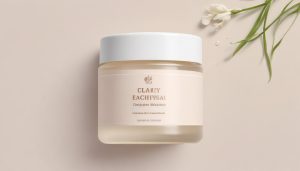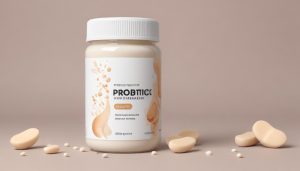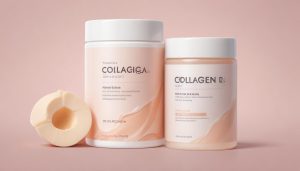Unlocking the Power of Collagen for Radiant Skin
Natalie Brooks August 24, 2025
Curious about how collagen truly impacts your skin’s vibrancy? This in-depth guide explores what collagen actually does, ongoing science, proven ways to support natural production, and the surprising lifestyle shifts that can help you reveal your most radiant complexion.
Understanding Collagen’s Essential Role in Skin
Collagen is a naturally occurring protein found abundantly throughout the human body, supporting not only our bones and joints but also the structure and elasticity of our skin. It’s often described as the ‘scaffolding’ that keeps skin firm, plump, and youthful. Without adequate collagen, the skin can lose its suppleness, leading to wrinkles and sagging. Research continuously highlights collagen’s crucial role in maintaining healthy, vibrant skin at every stage of life, making it a central focus in wellness and beauty discussions today.
Collagen fibers work together to create a smooth surface that reflects light, contributing to that luminous look many people seek. However, as people age, their natural collagen production slows. External factors such as ultraviolet radiation from sunlight and pollution can accelerate this process, leading to visible skin aging. It’s important to understand these changes since they affect not only appearance but also overall skin health and integrity.
There are several types of collagen present in the skin, with Type I and III being the most abundant. These types create a network within the dermis, providing resilience and a youthful bounce. When examining the skin under a microscope, healthy collagen looks like an intricate web, tightly woven. As this matrix deteriorates, the skin can become thin and fragile. This process is natural but can often be influenced by lifestyle, environment, and nutrition.
Collagen Loss: Why It Happens and How It Shows
Natural collagen loss is a gradual result of aging, but several habits can accelerate this decline. Starting as early as the mid-20s, the body’s ability to produce new collagen slows. Environmental stressors such as sun exposure, smoking, and chronic stress have been shown to further speed up this process. People might begin noticing fine lines, drier skin, or less elasticity as the most visible signs of decreased collagen, even before deep wrinkles appear.
The skin’s resilience and plumpness rely heavily on its collagen network. Without strong, abundant fibers, skin loses its density and firmness. This isn’t just about aesthetics—weak collagen can make skin more prone to injury and slower to heal. For those invested in their long-term skin wellness, understanding this process provides context for why preventative measures, such as consistent sun protection and balanced nutrition, truly matter (Source: https://www.ncbi.nlm.nih.gov/pmc/articles/PMC3583891/).
Hormonal shifts, particularly during menopause, are another major cause of collagen depletion. Studies indicate a noticeable drop in collagen synthesis during this time, contributing to changes such as dryness and reduced elasticity. It’s also worth noting that genetics may play a part, dictating the natural rate of collagen decline for each person. While these factors can’t be controlled, there are supportive actions to help maintain collagen health over time.
Supporting Natural Collagen Through Nutrition
The link between diet and skin appearance is stronger than most imagine, with certain foods shown to encourage collagen production. Nutrients such as vitamin C, zinc, and copper play critical roles in collagen synthesis and repair. Antioxidant-rich fruits like strawberries, citrus, and kiwi help to fight free radicals that break down collagen, making them a valuable addition to any wellness-focused meal plan (Source: https://www.hsph.harvard.edu/nutritionsource/vitamin-c/).
Collagen-rich bone broths are a traditional staple with renewed popularity, believed to deliver both amino acids and minerals vital for skin structure. However, while consuming these foods can offer the necessary building blocks, evidence suggests the body also requires a consistent supply of protein, healthy fats, and micronutrients from a balanced diet. Limiting sugar and refined carbohydrates is another important step since those can hinder healthy collagen metabolism (Source: https://www.eatright.org/health/wellness/healthy-aging/nutrition-and-skin-health).
Vitamin A, often obtained from leafy greens or orange vegetables, is well-documented for maintaining skin cell turnover and encouraging collagen production. Marine sources of collagen, like fish skin, have gained attention for their high bioavailability, though plant-based eaters can find supportive nutrients in beans, seeds, and nuts. Adequate hydration, meanwhile, keeps collagen fibers supple and functional, further supporting overall skin radiance and comfort.
Lifestyle Habits That Preserve Collagen
Simple daily routines, such as applying broad-spectrum sunscreen and avoiding tanning beds, can dramatically slow collagen breakdown caused by UV exposure. Sunglasses and hats offer added physical protection. Skincare routines that emphasize gentle cleansing and moisturizer help shield the skin’s barrier. For those who spend significant time outdoors, reapplying sun protection remains a crucial habit (Source: https://www.cancer.org/healthy/be-safe-in-sun.html).
Smoking is one of the strongest lifestyle factors linked to premature collagen loss. Cigarette smoke contains chemicals that break down collagen and restrict the oxygen supply necessary for its repair. Quitting smoking, at any stage, can quickly start to restore healthier skin tone and elasticity. Similarly, minimizing exposure to pollution and managing environmental toxins has a protective effect on the skin’s structural proteins (Source: https://www.dermnetnz.org/topics/skin-and-smoking).
Stress management is another underappreciated factor. High stress raises cortisol levels, which has been associated with impaired collagen synthesis. Practices such as regular exercise, dedicated downtime, and simple mindfulness techniques are shown to positively affect both mood and skin wellness. A holistic approach, combining these habits with sleep hygiene and adequate hydration, can maximize the body’s natural ability to protect and renew its collagen stores.
Topical and Supplement Trends: Facts and Misconceptions
With so many products promising enhanced collagen production, it can be challenging to distinguish what works from marketing claims. Topical collagen creams are unlikely to penetrate deep enough to influence collagen structure but can help to hydrate and temporarily smooth skin. Retinoids, on the other hand, have been shown to encourage natural cell turnover and stimulate collagen at a deeper level, earning recognition from dermatologists worldwide (Source: https://www.aad.org/public/everyday-care/skin-care-secrets/anti-aging/retinoids).
Oral collagen peptides have sparked considerable interest. These supplements, derived from bovine or marine sources, are broken down into amino acids upon digestion, which may then be used by the body wherever needed, including the skin. Early clinical trials show some promise for improved hydration and elasticity, particularly in women over 35, yet results vary and many experts encourage a balanced, food-first approach (Source: https://www.ncbi.nlm.nih.gov/pmc/articles/PMC6835901/).
When exploring products, it’s important to understand ingredient labels and formulation quality. Vitamin C serums, both oral and topical, play a crucial role in collagen synthesis, as does hyaluronic acid for hydration. Always consult a qualified professional before making substantial changes to existing routines, especially with topical actives or supplements. The key takeaway: while some products have a place, consistent lifestyle choices form the true foundation for lasting skin vitality.
Empowering Yourself with Evidence-Based Collagen Strategies
Being proactive about collagen preservation begins with knowledge. Recognizing the influence of nutrition, sun protection, and stress management empowers individuals to make meaningful adjustments. Instead of reaching for every trending product, many find lasting results come from small, sustained improvements in daily routines. This includes incorporating antioxidant-rich foods, using physical sun barriers, and fostering supportive self-care habits.
Periodic self-assessment can help track changes in skin texture or elasticity, helping to distinguish between normal aging and shifts that may warrant further support. If concerns about accelerated skin aging arise, consulting a dermatologist is highly advisable. These experts can provide guidance tailored to an individual’s skin type and genetic background, optimizing wellness outcomes without the guesswork often associated with beauty trends.
Ultimately, the most effective strategies for supporting collagen are those that combine science-backed lifestyle habits with evidence-informed product choices. Staying informed and skeptical about dramatic claims helps maintain realistic expectations. Those who commit to holistic approaches tend to see benefits both in their skin and broader health. As the research around collagen evolves, so do the options for nurturing radiance from within.
References
1. National Institutes of Health. (2021). Collagen: What is it and what are its uses? Retrieved from https://www.niams.nih.gov/health-topics/collagen
2. Harvard T.H. Chan School of Public Health. (2022). Vitamin C. Retrieved from https://www.hsph.harvard.edu/nutritionsource/vitamin-c/
3. Academy of Nutrition and Dietetics. (2021). Nutrition and Skin Health. Retrieved from https://www.eatright.org/health/wellness/healthy-aging/nutrition-and-skin-health
4. American Academy of Dermatology Association. (2023). Retinoids: What they are and how to use them. Retrieved from https://www.aad.org/public/everyday-care/skin-care-secrets/anti-aging/retinoids
5. U.S. National Library of Medicine. (2013). The effects of aging and sun exposure on the skin. Retrieved from https://www.ncbi.nlm.nih.gov/pmc/articles/PMC3583891/
6. American Cancer Society. (2023). Be Safe in the Sun. Retrieved from https://www.cancer.org/healthy/be-safe-in-sun.html







